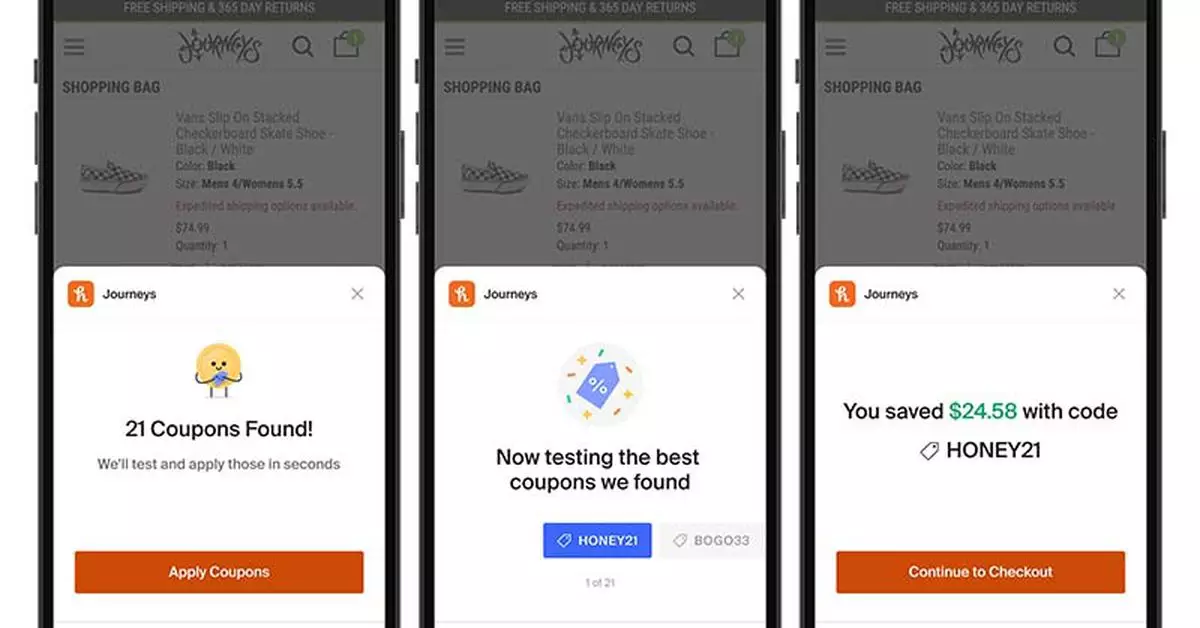In the ever-evolving world of online commerce, tools designed to enhance consumer experience are a dime a dozen. One such tool is PayPal’s Honey browser extension, touted for its ability to locate promotional codes that can reduce shopping costs. However, a recent video by YouTuber MegaLag has raised significant questions about the integrity of this widely used tool, labeling it a “scam.” This claim, which alleges that Honey not only fails to deliver on its promises but also siphons profits from influencers who promote it, insightfully challenges the extension’s business model.
Honey’s primary appeal lies in its promise to find every working promo code available on the internet—a bold claim that can be rooted in skepticism. According to MegaLag’s assertions, the reality is far less impressive. Users have found that not only does Honey frequently fail to locate usable codes, but it often defaults to offering its own coupon codes that may not provide the best discounts available. This raises an intriguing question: Are users being led to believe they are securing the best deals when they might be missing out on better savings?
The controversy escalates with allegations that Honey hijacks affiliate revenue from influencers. MegaLag points out that when users click on influencer-generated affiliate links, Honey replaces these with its own tracking codes at checkout. This occurs regardless of whether the browser extension actually produced a coupon code, resulting in Honey taking credit for the sale instead of the content creator. Such practices not only affect influencers financially but also undermine the trust that consumers place in recommended products and services.
In a world where affiliate marketing is a significant revenue stream for many content creators, Honey’s approach could be damaging. If influencers’ earnings are compromised, this could deter them from promoting services that yield returns, ultimately affecting their livelihoods. An environment where tools like Honey leverage affiliate credits at the expense of creators could lead to a shift in how influence and recommendations are valued in the digital marketplace.
In response to the growing concerns, Josh Criscoe, PayPal’s Vice President of Corporate Communications, has firmly stated that Honey adheres to prevailing industry practices, particularly the concept of “last-click attribution.” While this response indicates a commitment to standard procedures, it does not absolve Honey of ethical scrutiny. The argument comes perilously close to defending practices that, while legally sound, may be ethically dubious. Does following industry guidelines excuse potentially exploitative tactics against smaller content creators?
Such concerns are not entirely new; others have echoed similar sentiments regarding Honey’s operations. An arbitrary 2021 Twitter discourse advised users to utilize discount codes in alternate browsers to sidestep Honey’s alleged affiliate tracking. Moreover, the Linus Media Group’s decision to terminate its affiliation with Honey has not gone unnoticed. Employee testimonies point towards a greater reluctance in the tech community to engage with a service that seems to prioritize its financial gain over its user base.
As consumers become increasingly wary of companies that may prioritize profit over integrity, the demand for transparency is louder than ever. Trust is crucial in the relationship between users, influencers, and services like Honey. A third-party extension that manipulates affiliate links and codes not only confuses users but also undermines the authenticity of recommendations made by competent content creators.
In light of the growing criticism surrounding Honey, consumers and influencers alike may reconsider how effectively they can rely on such platforms in their shopping journeys. The balance between convenience and ethicality is delicate and only time will reveal if Honey can navigate through the scrutiny and emerge with a reputation intact.
Ultimately, the unfolding narrative surrounding PayPal’s Honey browser extension opens up essential conversations about ethical practices in e-commerce and the significant role that influencers play in advertising. As the dust settles, one thing remains clear: consumers must remain vigilant, ensuring they are not just equipped with tools to save money but also aligned with businesses that uphold ethical standards in their operations.


Leave a Reply